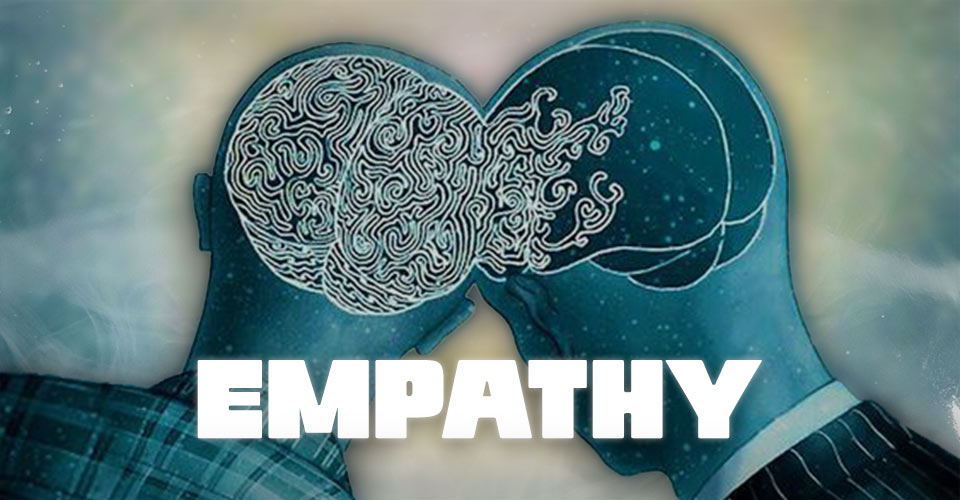Empathy is the ability to understand and share the feelings of another person, experiencing the world from their perspective. Its impact on mental health is profound, serving as a protective factor by reducing stress, anxiety, and depression and creating a supportive environment for emotional well-being.
What Is Empathy?
Empathy encompasses the skill of comprehending and sharing the emotions experienced by others 1 Empathy – StatPearls – NCBI bookshelf. (2023, November 5). National Center for Biotechnology Information. Available from: https://www.ncbi.nlm.nih.gov/books/NBK549810/ . It involves not only recognizing someone else’s emotions but also connecting with other people’s emotions on a deeper level. Several professions, particularly occupations in the physical and mental health care sectors (like doctors, nurses, psychologists, psychiatrists, etc.) also employ empathy for treatment and recovery.
How Does Empathy Develop?
Empathy evolves through a dynamic blend 2 Hardee J. T. (2003). An Overview of Empathy. The Permanente Journal, 7(4), 51–54. of biological, environmental, and social influences across a person’s life span. In early stages, infants respond to caregivers’ emotions, and as children grow, their ability to understand and share others’ feelings develops.
Cognitive empathy typically emerges in early school years, while emotional empathy continues maturing into adolescence. Parental influence, positive social interactions, and exposure to diverse experiences contribute significantly. Throughout adulthood, ongoing experiences and relationships shape and refine empathy. Regular practice and supportive environments 3 Davis C. M. (1990). What is empathy, and can empathy be taught?. Physical therapy, 70(11), 707–715. https://doi.org/10.1093/ptj/70.11.707 further enhance this vital aspect of human connection.
Types Of Empathy
Research 4 Riess H. (2017). The Science of Empathy. Journal of patient experience, 4(2), 74–77. https://doi.org/10.1177/2374373517699267 attributes the different types of empathy to the following:
- Cognitive Empathy: Understanding others’ perspectives in a given situation.
- Emotional Empathy: Sharing and feeling others’ emotions.
- Compassionate Empathy: Combining understanding with a desire to help.
- Affective Empathy: Automatically mirroring others’ emotions.
- Somatic Empathy: Physically feeling others’ sensations or pain.
- Visual Empathy: Understanding emotions through facial expressions and body language.
Empathy And Mental Health
Empathy and mental health are intricately related 5 Ratka A. (2018). Empathy and the Development of Affective Skills. American journal of pharmaceutical education, 82(10), 7192. https://doi.org/10.5688/ajpe7192 , the former acting as a protective shield against the onset of mental health disorders by fostering a deeper connection between individuals. When we experience empathy, whether as the giver or receiver, it creates a supportive framework that helps buffer against the adversities of life.
Knowing that others understand and share in our emotional experiences can mitigate the impact of stressors, diminish feelings of loneliness, and enhance overall emotional resilience. By building a sense of community and reducing social isolation, empathy becomes a crucial factor in preventing the development of mental health disorders.
Why Is Empathy Important In Mental Health Support ?
Empathy stands as a crucial cornerstone in mental health support 6 Moudatsou, M., Stavropoulou, A., Philalithis, A., & Koukouli, S. (2020). The Role of Empathy in Health and Social Care Professionals. Healthcare (Basel, Switzerland), 8(1), 26. https://doi.org/10.3390/healthcare8010026 in several ways:
- Genuine empathy acknowledges and supports individuals’ struggles, impacting positively in psychological well-being.
- Feeling heard and validated through empathy fosters a sense of belonging.
- Empathy helps mitigate stress, anxiety, and depression by lightening the burden of challenges.
- Empathy creates a supportive environment for open communication and reduces the stigma around mental health.
- Cultivating a society that embraces empathy establishes a framework for resilient and flourishing mental health, benefiting individuals and communities.
Read More About Stress Here
Lack Of Empathy And Mental Illness
The absence of empathy can have profound negative effects on mental well-being 7 Yu, C. C., Tan, L., LE, M. K., Tang, B., Liaw, S. Y., Tierney, T., Ho, Y. Y., Lim, B. E. E., Lim, D., Ng, R., Chia, S. C., & Low, J. A. (2022). The development of empathy in the healthcare setting: a qualitative approach. BMC medical education, 22(1), 245. https://doi.org/10.1186/s12909-022-03312-y . Without empathetic understanding, individuals may feel isolated, misunderstood, and invalidated in their emotional experiences. This lack of connection can exacerbate feelings of loneliness and contribute to the deterioration of mental health.
Read More About Loneliness Here
In relationships, a deficit of empathy may lead to strained connections and difficulty in resolving conflicts, further impacting emotional stability. The lack of empathetic support can impede coping mechanisms for those with mental health challenges, hindering their ability to overcome difficulties. This deficiency can significantly harm mental well-being by eroding connections and impeding crucial emotional support needed for resilience and recovery.
How To Measure Empathy
Methods 8 Halpern J. (2003). What is clinical empathy?. Journal of general internal medicine, 18(8), 670–674. https://doi.org/10.1046/j.1525-1497.2003.21017.x , including self-report surveys, observational techniques, neuroimaging, and role-playing exercises, are used to effectively measure empathy. These approaches, which assess both cognitive and emotional aspects of empathy, serve diverse purposes in research and have practical applications in psychology, healthcare, and education.
Assessing empathy involves the application of various tools 9 Malakcioglu C. (2022). Empathy Assessment Scale. Northern clinics of Istanbul, 9(4), 358–366. https://doi.org/10.14744/nci.2022.55649 designed to quantify its cognitive and emotional dimensions. These include:
- Interpersonal Reactivity Index (IRI), a self-report questionnaire that delves into aspects such as perspective-taking and empathic concern.
- Emotional Empathy Scale (EES) focuses specifically on gauging an individual’s emotional response and understanding of others’ feelings.
- Reading the Mind in the Eyes Test (RMET) requires participants to infer emotions from photographs, assessing cognitive empathy.
- Jefferson Scale of Physician Empathy (JSPE) is tailored for healthcare professionals, evaluating empathy within a clinical context.
How To Develop Empathy Skills: Tips And Strategies
Consider the following tips 10 Jankowiak-Siuda, K., Rymarczyk, K., & Grabowska, A. (2011). How we empathize with others: a neurobiological perspective. Medical science monitor : international medical journal of experimental and clinical research, 17(1), RA18–RA24. https://doi.org/10.12659/msm.881324 as measures on how to develop empathy skills:
- Active Listening: Focus on understanding others without interrupting.
- Perspective-Taking: Put yourself in someone else’s shoes to understand their viewpoint.
- Cultivate Curiosity: Ask questions to explore others’ experiences and emotions.
- Non-Verbal Cues: Pay attention to body language and facial expressions.
- Practice Open-Mindedness: Be receptive to diverse perspectives and experiences.
- Validate Emotions: Acknowledge and respect others’ feelings.
- Empathetic Communication: Express empathy through words and tone.
- Read Empathy Literature: Enhance understanding 11 Stepien, K. A., & Baernstein, A. (2006). Educating for empathy. A review. Journal of general internal medicine, 21(5), 524–530. https://doi.org/10.1111/j.1525-1497.2006.00443.x through books and resources.
- Volunteer And Engage: Actively participate in community or social initiatives.
- Reflect On Experiences: Consider and learn from personal interactions.
Read More About Body Language Here
Takeaway
Empathy stands as a cornerstone of human connection, fostering understanding, compassion, and supportive relationships. Its multidimensional nature, encompassing cognitive and emotional elements, plays a pivotal role in various aspects of life, from interpersonal dynamics to mental health support. By actively practicing and cultivating empathetic skills, individuals contribute to a more compassionate and empathetic society, promoting emotional well-being and fostering harmonious connections with others.
At A Glance
- Empathy is the ability to understand and share the feelings of others
- There are six types of empathy: Cognitive, emotional, compassionate, affective, somatic, and visual empathy.
- Empathy and mental health are intricately related, particularly when it comes to reducing the risks of mental health disorders.
- A lack of empathy and mental illness are inversely related, exacerbating isolation and negative coping mechanisms.
- Measures on how to develop empathy skills involve active listening, perspective-taking, and engaging in empathetic communication.
Frequently Asked Questions (FAQs)
1. What Creates Empathy?
Empathy is created through a combination of genetic predisposition, life experiences, and social influences.
2. Is Empathy Natural Or Learned?
Empathy is both natural and learned, with a biological basis that is shaped and refined through interactions and experiences.
3. Are Intelligent People More Empathetic?
There is no clear correlation between intelligence and empathy; while intelligence may contribute to understanding others, empathy is a complex trait influenced by various factors.













